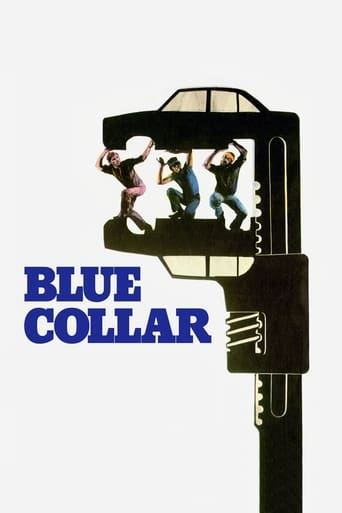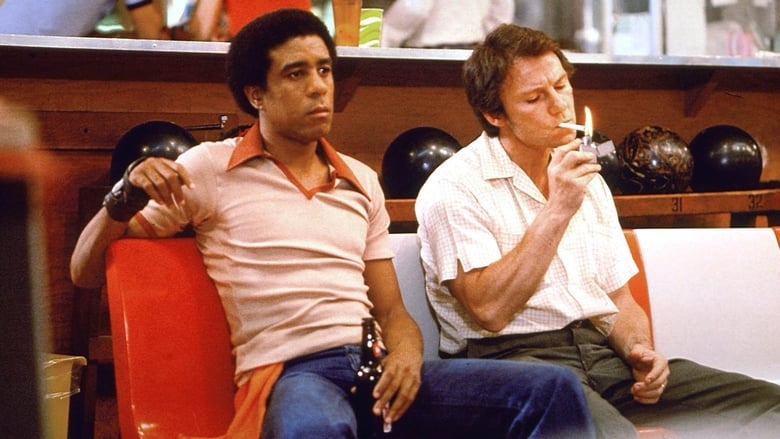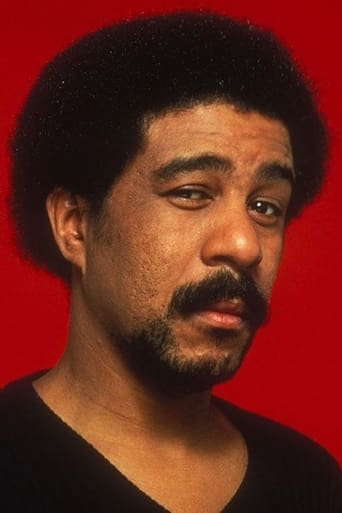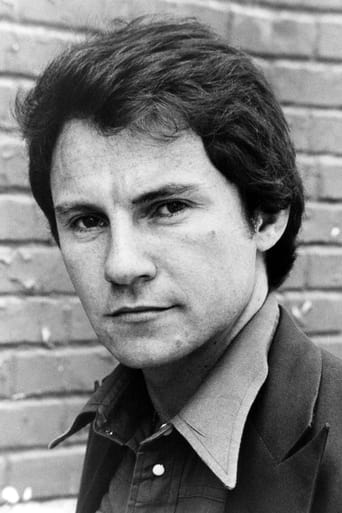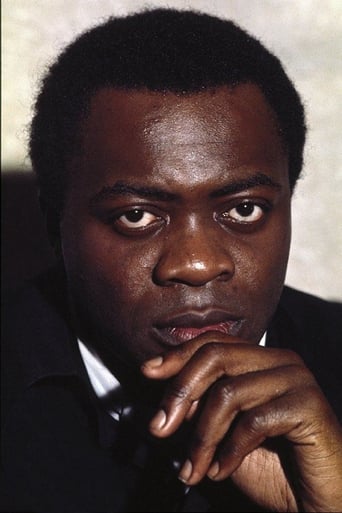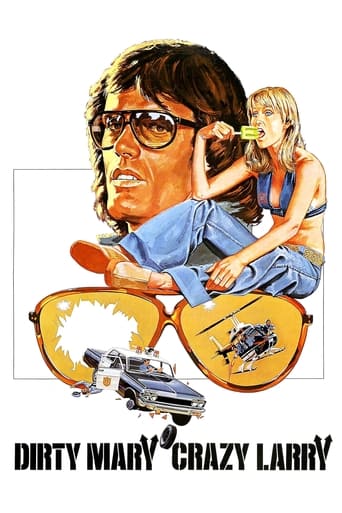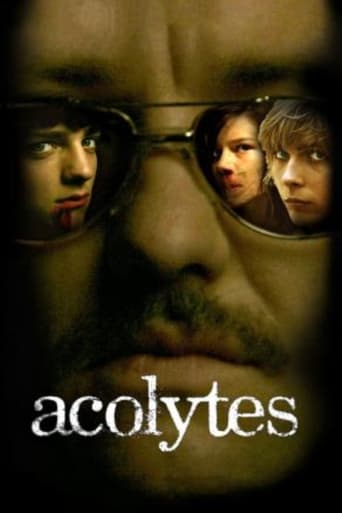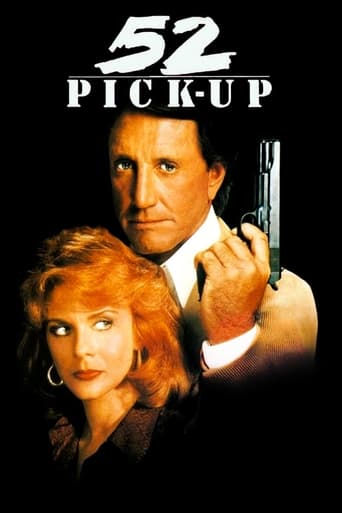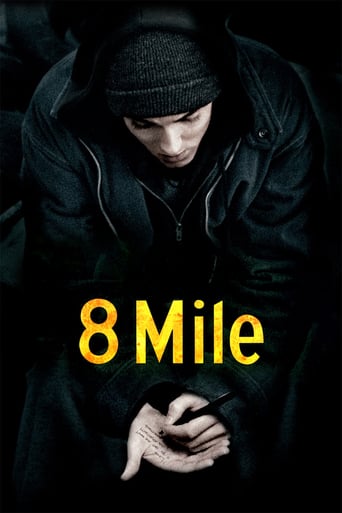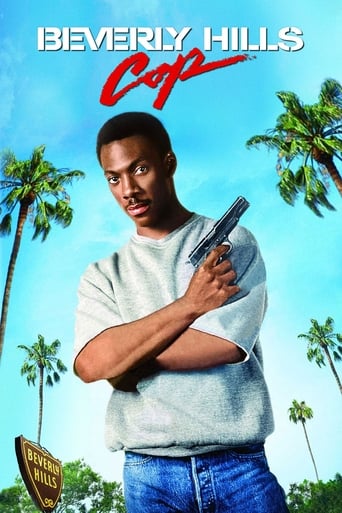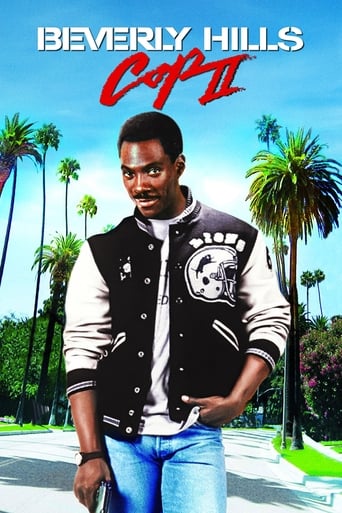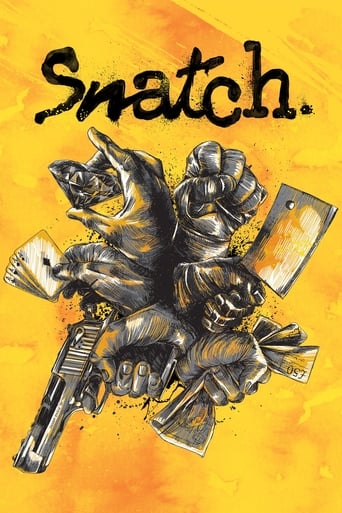Blue Collar (1978)
Fed up with mistreatment at the hands of both management and union brass, and coupled with financial hardships on each man's end, three auto assembly line workers hatch a plan to rob a safe at union headquarters.
Watch Trailer
Cast


Similar titles
Reviews
This gritty urban drama centres on the plight of three downtrodden Detroit autoworkers who are at the mercy of the corporation they work for and the corrupt union who are supposed to represent them. Desperation and frustration leads them to carry out a robbery of their union headquarters and in doing so find incriminating documents which they try to use as blackmail.Blue Collar is Paul Schrader's directorial debut. He had hitherto been known primarily as the writer of Martin Scorsese's classic Taxi Driver (1976) but this is the first one where he took the director reigns. It's clearly a product of the New Hollywood with its confrontational style and it probably suffered at the box office because of this, as by 1978 we were well and truly into the blockbuster era and such downbeat dramatic fare was somewhat less welcome by audiences and so Blue Collar became more of a sleeper than a hit. It tackles tough social issues like race relations and the hardships of the working class in a capitalist society head on, with no false niceties. The highly profane script portrays its characters realistically and with no glamorisation, all of which is to the movie's lasting credit and value. It's hardly a feel-good story either with the ultimate message being that the system is in place to actively encourage division amongst workers rather than any platform that encourages collectively powered change. Acting is universally good with the three main actors Richard Pryor, Harvey Keitel and Yaphet Kotto all wholly convincing in their roles. Pryor is particularly excellent here, showing the great range he had as an actor - a detail that is not widely known given his appearances mainly in comedy - he in fact uses his comedic skills quite often to draw out dramatic truths here. The film itself remains an impressively uncompromised one.
Following his screen writing credits on classics like Obsession and Taxi Driver, Paul Schrader would make his first foray behind the camera with the 1978 film Blue Collar. Spotlighting the exploitation of proletariat workers at the hands of powers at be, the film ranks among Schraeder's best and remains a quintessential piece of 1970's U.S. independent cinema.Blue Collar revolves around three workers at a Detroit auto plant; Zeke (Richard Pryor), Jerry (Harvey Keitel) and Smokey (Yaphet Kotto). Perpetually mistreated by their higher-ups and barely making enough money to feed their families, the film follows the group as they hatch a desperate plan to rob their union. Carrying through with the plan, the men end up stumbling upon evidence of behind-the- scenes corruption, setting the stage for the film's second half where the big wigs gradually take down each member of the group.Shot with an air of gritty realism, Blue Collar is a low budget drama with a Marxist message - powerfully channelling themes of race, class conflict and white collar crookedness. Though similar contemporaneous films have endured better in the annals of film history, Schraeder's debut remains an overlooked gem - one worthy of being dusted off and given a second look.
The world is represented to us through stories from parents, books, friends, conversations, groups at school, around the playground. Not all of our stories explain the world, but provide us with an easy, unconscious, involving way of making sense of it, sharing that with others. Its universality underlines its intrinsic place in human communication. This is why stories should be personal, tell the truth, and few narrative films have ever been as penetrating about how the working classes are manipulated by the system, or as affecting, especially in the grim results of each man being pitted against the other by corporate and governmental pressures, as Paul Schrader's Blue Collar, a pure rush of aggressive humor, relentless dramatic turns and real-world atmosphere.Schrader's known best for his work collaborating as screenwriter on many of Scorsese's most poignant films. If you watch Blue Collar expecting a Scorsese-style film, depending on your reading of Scorsese's work---and a wide array of certain men respond deeply to it---you'll be charmed in somewhat the same way. Schrader at the wheel, however, holds shots much longer, his compositions much wider, which could be attributed to his influence by Ozu. His editing style is less restless, but more direct: The coming shift shows up. Soundtrack music of hammering insistence, steering the force of the machines stamping out car doors. And somewhat like a Scorsese film, but in a more straightforward, cut-and-dried way, the images are cut to the music. The camera brings us into the innards of an automobile factory, close enough to virtually smell the perspiration, squint our eyes against the sparks from welding torches. Blue Collar's about life on the Detroit production conveyors, about how it makes men weary, confines them to a permanent deferred credit arrangement. It's a bitter, firebrand-progressive movie about the Venus flytrap ensnaring workers between the big industry and big labor that digest them. Three workers, pals on and off the job, are each no better or worse off than the other. They work, drink afterward in the neighboring bar, go home to mortgages, bills, kids who need braces. One day they get sick and tired enough to decide to rob the office safe of their own union. What they find there's merely a few hundred bucks, and a ledger that looks to include the details of illegal loans.They're played by Richard Pryor, Harvey Keitel and the under-appreciated Yaphet Kotto. They're all three in top form. Apparently according to Schrader, none of the them got along during production. Fistfights between takes were not uncommon. Nevertheless, Pryor, especially, is a wake-up call: He's been engaging in a lot of movies, though pretty much invariably as himself, his smooth tongue doggedly in cheek, running comic variations on the gist of his dialogue. This time, harnessed by Schrader, he unleashes a taut, persuasive performance as a family man, his dressing-down of a union rep and an exchange with an IRS agent definite masterstrokes. Kotto plays his opposite, an ex-con who throws all-night parties comprised of sex, booze and weed. Keitel is their white friend, constantly behind on his loan payments, who comes home one day to see that his daughter's attempted to curve paper clips over her teeth to make her friends at school think she's got the braces she should have.Schrader goes for a comfortably crude humor in their scenes: The movie's at ease with itself; we get the exact nature, characteristics of their community. We get their friendship, too, which confronts what the movie tempestuously and very very directly indicts: That trade federations and corporate management both implicitly work to set the wealthy against the underprivileged, black against white, old against young, to divide and conquer.The heist originates naively enough when Pryor orders that his locker be fixed. The union reps (one played by fine character actor Lane Smith) are apathetic towards Pryor and virtually everybody else. So Pryor barges into the office of the grizzled Santa Claus-looking union head who was a rebellious progressive himself, once, decades ago. And as the refined politician's handing him all sorts of subterfuge, Pryor sees the office safe, becomes inspired. The larceny itself strikes the right pitch between potboiler and in some sense a silent farce. Then, the movie's rage starts to broil. When the threesome find that the ledger may be worth more than the money, they're divided between using it for blackmail, or revealing the skimming of their own union. Schrader slowly unravels his complete picture in the second half: A hearty, flourishing camaraderie abruptly embitters. The system deepens divides between them, as Pryor's furnished with a union job proposal, Keitel becomes an FBI rat, Kotto evinced to have little to no use for the capitalist machine in a scene of shocking, agonizing voltage.It took a lot of balls to make Blue Collar, particularly to track its turning points through to their inexorable outcome. It could've backpedaled in its last half hour, given us an easy, tried-and-true Hollywood finish. This isn't a liberal film but a radical one, one I'd bet a slew of assembly-line workers might see with a jolt of acknowledgement. It also took a particular cinematic penchant to make it flourish with equal banter, compassion, and tension. It's both pleasure and prosecution, functioning equally well in its humanistic layers as with its concepts. After penning Pollack's The Yakuza, Scorsese's Taxi Driver, De Palma's Obsession, Schrader was able to summon that he helm his own material, and Blue Collar is an impressive, surprising launch, taking risks and succeeding with them.
A group of blue collar car plant workers, Zeke, Jerry & Smokey (Richard Pryor, Harvey Keitel & Yaphet Kotto respectively) decide to get even with the crooked Union that's keeping them down I can't believe I've never heard of this film before, especially inexplicable since I'm huge fans of Pryor, Keitel, Kotto, and a major fan of almost every other Paul Schrader film (the only one i dislike being the vastly overrated "Last Temptation of Christ"). But I'm sure glad I stumbled on this film while channel surfing one night, the acting by everyone involved is superb, all the movie fits remarkably well, the directing is great if low-key, and the whole movie just really clicks. I'll definitely be adding this to my growing DVD collection extremely soon. I just can't seem to find the right words to praise this film enough.My Grade: A

